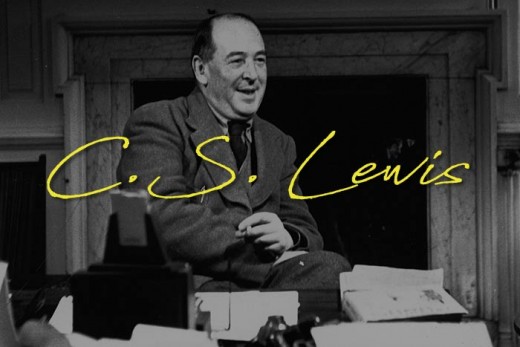The Fruit of Abinadi: Alma and Amulek—Zeezrom’s Silver Bribe and the Test of True Loyalty (Episode Five)
Great writers have long taken it as their responsibility to expand the minds of readers for good—C. S. Lewis, Cleon Skousen, Orson Scott Card, J.R.R. Tolkien, and many others. Edification in goodness was their aim, beyond simply telling a good story. By that token, this article seeks to broaden the human mind by adding perspective in Christian understanding. Long-held thoughts and perspectives here are strengthened with supplemental sources for faith promotion, identified and offered freely.
In the previous episode, The Fruit of Abinadi: Alma and Amulek—The Case Against Faith (Episode Four) the prophet and his newly called companion labored with boldness to turn hearts toward Christ. Now, their mission takes a sharper turn. A skilled lawyer steps forward, testing their message and their motives, hoping to trap them in words. In this pivotal exchange, Alma and Amulek answer with inspired clarity, exposing where true devotion lies and revealing timeless principles for Saints seeking to serve God above all else.

Setting the Stage for the Confrontation
This ancient conversation unfolds in the Americas and is recorded in The Book of Mormon: Another Testament of Jesus Christ. The central figures are two men: Amulek, the preacher, and Zeezrom, the lawyer. God had commanded Amulek and his prophetic companion, Alma, to preach repentance to a rebellious people in the city of Ammonihah—a city whose inhabitants had willfully separated themselves from the Nephite nation.
When Alma and Amulek addressed the people, their words stirred more than spiritual curiosity. The city’s lawyers and judges took sharp notice because these two men prophesied the destruction of Ammonihah if its people refused to repent and return to Jehovah. Among those listeners was Zeezrom—trained, skilled, and calculating—who fixed his attention on Amulek. With practiced precision, Zeezrom sought to ensnare the preacher’s words, twist them, and find legal grounds to accuse him of a crime.
Amulek Confronts Zeezrom’s Bribe: A Battle of Faith, Wealth, and Integrity in Ancient Ammonihah
Zeezrom began his probing with a measured challenge: “Will ye answer me a few questions which I shall ask you?”
Amulek replied without hesitation, “Yea, if it be according to the Spirit of the Lord, which is in me; for I shall say nothing which is contrary to the Spirit of the Lord.”
Sensing an opening, Zeezrom pressed further: “Behold, here are six onties of silver, and all these will I give thee if thou wilt deny the existence of a Supreme Being.”
Amulek’s answer was sharp and uncompromising: “O thou child of hell, why tempt ye me? Knowest thou that the righteous yieldeth to no such temptations?” (Alma 11:21–23)
Zeezrom’s offer was more than a bribe—it was a test. The lawyer sought to measure the depth of Amulek’s conviction, to see if his faith could be bought or if his preaching was merely a mask for personal gain.
Amulek, after all, was no obscure stranger. He was a man of means and social standing in Ammonihah, someone whose name carried weight in the community. Zeezrom likely knew of his wealth, making the promise of even more silver a deliberate and calculated temptation.
This was the lawyer’s litmus test: if Amulek faltered, it would confirm to the watching crowd that these warnings of destruction were just another scheme for self-advancement.
In a city without modern distractions—no cell phones, radios, or televisions—public proclamations in the city center drew immediate attention. And Ammonihah was already buzzing with political unrest and competing voices. Street preachers were not unusual; hecklers were even less so. But the appearance of two determined messengers—Amulek and his prophetic companion, Alma—signaled something different. Especially since Alma had once come alone to these same streets and been driven out. Now he had returned with reinforcement, and the stakes were higher than ever.

The Amulek Test: Faith vs. the Lure of Wealth
When Zeezrom first approached Amulek, he came not with an open heart but with a calculated snare. He held out six onties of silver and offered them if Amulek would deny the existence of a Supreme Being. In the city of Ammonihah, where Amulek’s name and wealth were already known, the offer was not only a bribe—it was a public test of loyalty.
The people of the city, steeped in political turmoil and eager for spectacle, watched to see if Amulek was just another man using religion as a cover for self-gain. Zeezrom’s temptation was simple: trade your devotion to God for material reward, and prove your message is no different from any other hollow proclamation in the city square.
Amulek’s answer cut through the trap: “O thou child of hell, why tempt ye me? Knowest thou that the righteous yieldeth to no such temptations?” (Alma 11:23)
By refusing the silver, Amulek exposed the lie at the heart of Zeezrom’s challenge. True servants of God do not barter their faith for treasure. They cannot be bought, because their devotion is not for sale.
Just as Amulek faced the silver test in ancient Ammonihah, modern Saints face their own version of the same trial—not always in coins, but in the subtle exchange of sacred devotion for worldly gain.

God’s Covenant Blessings for Those Who Keep His Day Holy
The Sabbath Test: Faithfulness vs. the Love of Money
Average Saints are no less expected to hold to their faith than prophets of old. One modern example of the same temptation Amulek faced is the choice to work on the Sabbath day when it is not required by one’s profession.
Nurses, doctors, police officers, firefighters, and others who must work on Sundays do so out of necessity, not greed. God sees their service and judges their hearts with grace sufficient for them. But when individuals skip worship to gain another day of earnings or leisure, they yield to the love of money over devotion to the Lord.
The Lord asks for one day—His holy day—out of the seven He gives us. While many Christians turn the Sabbath into just another workday or a personal holiday, it reveals not righteous devotion, but a disregard for His holiness.
The Lord’s promise to Isaiah is clear:
If thou turn away thy foot from the sabbath, from doing thy pleasure on my holy day; and call the sabbath a delight, the holy of the Lord, honourable; and shalt honour him, not doing thine own ways, nor finding thine own pleasure, nor speaking thine own words: Then shalt thou delight thyself in the Lord; and I will cause thee to ride upon the high places of the earth, and feed thee with the heritage of Jacob thy father: for the mouth of the Lord hath spoken it. (Isaiah 58:13–14)
Those who honor the Sabbath will find joy in the Lord. He will lift them up and bless them with the heritage promised to Israel—peace, increase, and His presence among them.
Leviticus 26:4–12 lists these covenant blessings for those who keep the Sabbath—promises still in force today:
-
Rain in due season and abundant harvests
-
Safety and peace in the land
-
Victory over enemies
-
Fruitfulness and prosperity
-
God’s covenant presence: “I will walk among you, and will be your God, and ye shall be my people.”
The faithful Saint must decide: are these blessings worth more than an extra day of pleasure or profit? For the covenant-keeping disciple, the answer should be the same as Amulek’s—an unshakable refusal to sell out devotion to God for the passing rewards of the world.

Faith Tested: How Ancient Courage and Modern Devotion Prove Loyalty to God
Summation
Amulek’s words struck at the root of Zeezrom’s deceit: “Believest thou that there is no God? I say unto you, Nay, thou knowest that there is a God, but thou lovest that lucre more than him.” (Alma 11:24)
Most people believe in some form of a supreme being. But it is far easier to make that being distant and unknowable—safe enough to acknowledge, yet far enough away to ignore when His commandments interfere with personal desires. Religion without commitment cannot save anyone.
So where is the heart of God’s people in modern society? Only God truly knows. Yet there are signs. True Saints will speak truth even when it is unpopular. They will honor and observe one day out of the seven in deliberate devotion to God. They will reject the lure of worldly gain when it conflicts with the will of Heaven.
Knowing there is a God, as the devils do, is not the same as having faith in Him. Faith compels action—it changes behavior, redirects desires, and fuels obedience. That was the difference between Zeezrom, who loved wealth more than God, and Amulek, who would not be bought. It is the same difference between those who trade worship for leisure or money and those who keep the Sabbath holy.
When the Lawyer’s Question in The Fruit of Abinadi: Alma and Amulek—Faith’s Triumph Over the Lawyer’s Final Challenge (Episode Six) was brought to trial in the city of Ammonihah, the verdict was clear: the faithful prevail. Not because they win every argument, but because they refuse every offer that would sell their soul for silver.
© 2018 Rodric Anthony Johnson








